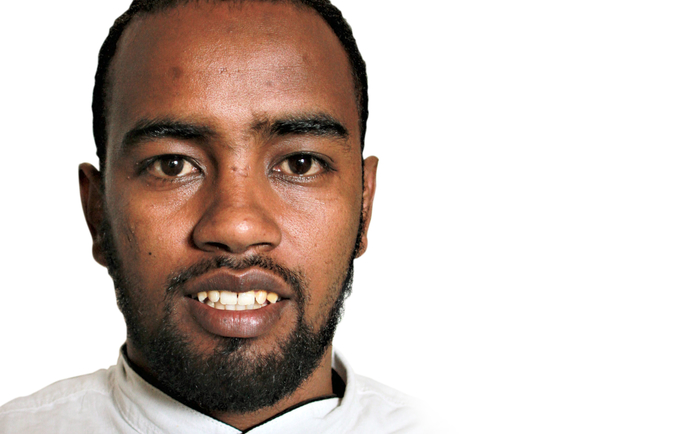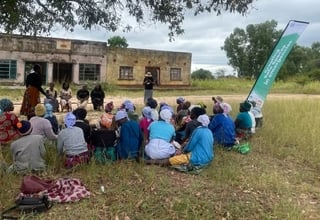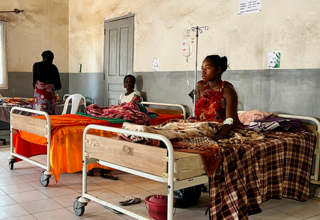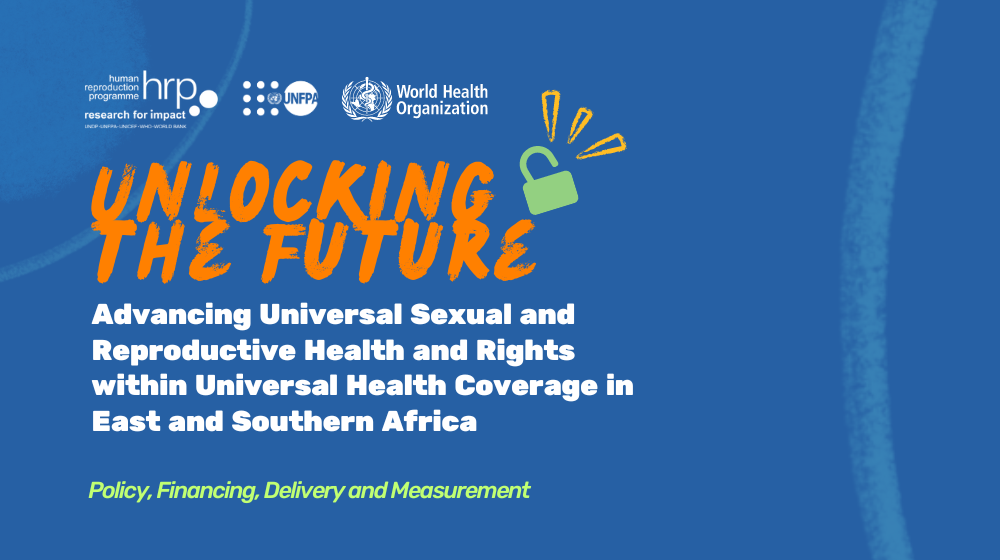This week, we are highlighting remarkable young people in the region who are building peace in their communities. Here’s Halkano’s story:
Kenya – Violence has been a regular occurrence in the northern Kenyan community that he grew up in. Yet even from a young age, Halkano Boru has been able to help change this reality.
Cattle rustling has long been considered a cultural practice among Kenya’s pastoralists. But over the past few decades, cattle raids have become more frequent – and deadly. Many herders – often young boys or men – are caught in the crossfire. Having been a pastoralist himself, Halkano had witnessed his own family and neighbours fall victim to the violence.
“Most of the youths in my area were engaged in the violence,” recalls Halkano. “They don’t go to school so they engage in violent cattle rustling.”
At just 24 years old, Halkano developed an initiative that educated and empowered pastoralists to abandon the violent practices of cattle rustling and instead harness their energy into returning to school or building small businesses.
“Engaging with them directly brought change,” says Halkano. “Most youths went to school and many started retail businesses, such as selling food.”
Halkano is now a United Nations Volunteer (UNV), where he is responsible for monitoring conflict, organizing community and youth outreach activities, and engaging youth directly involved in violence. He also co-hosts a local radio programme where he shares and discusses ideas around peace building.
“If we do not tap into their ambitions, their energy, we are doing zero work in terms of preventing violence and extremism,” says Halkano.
“I urge governments and international organizations to tap into the energy of young people and ensure they are not the perpetrators but the drivers of peace building.”
The activities Halkano is involved with have helped reduce violence drastically in his community. Once ranked first for violence in the region, his community now stands at 36 out of 47 affected areas in Kenya.
“My work has really helped me transform myself, in terms my career, inter-relations among the communities and the general society,” says Halkano with a smile. “They see me as someone who can bring change to them. I am their local solution man.”
Women and young people are often the first to respond in a crisis and are vital to an effective and inclusive humanitarian response that is locally driven and sustainable. Ensuring young people have the skills, capacity and resources to prevent, prepare for, respond to and recover from humanitarian situations, will help reduce the costs of and the need for international humanitarian support, improve humanitarian effectiveness and strengthen the resilience of communities.
UNFPA is committed to empower and promote the participation and leadership of young people in crisis prevention and recovery. This enables adolescents and young people to be agents of positive transformation.
UNFPA, through the Safeguard Young People Programme, has helped improve the health and rights realities of millions of young people in Southern Africa. The programme most recently supported the East and Southern Africa Regional Consultation on Youth, Peace and Security held in Johannesburg, South Africa. This regional consultation is part of a global effort to bolster action on Resolution 2250. The discussions from various regional consultations will feed into the Progress Study on Youth, Peace and Security, highlighting the positive contributions that young people make to peace building.




